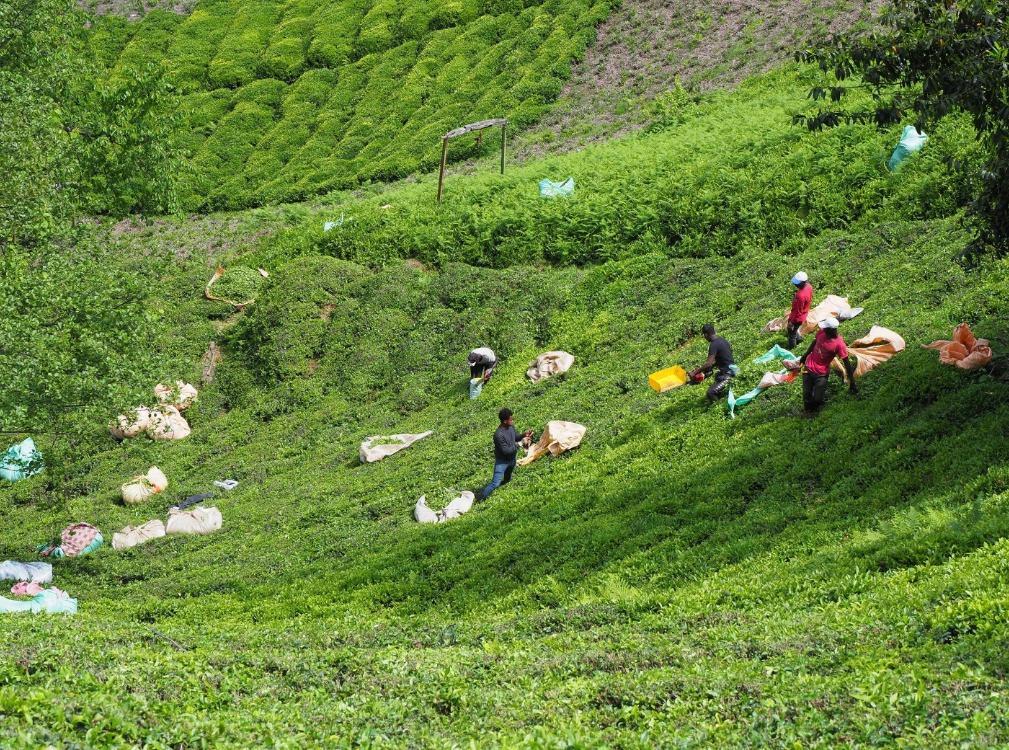
The tea cultivation, a vital pillar of income in the Black Sea region, has found itself in the throes of alterations in precipitation patterns and consistently high temperatures, as decline in tea yields that has persisted for a couple years continues unabated.
In the Eastern Black Sea region, encompassing the provinces of Rize, Trabzon, Artvin, and Giresun, the third harvest season for fresh tea production continues across 830,000 hectares of land, involving around 1 million producer families.
Drought related to global climate change, coupled with reduced rainfall and soaring temperatures, has resulted in yield losses in tea farming. In addition to fluctuant climate, improper harvesting techniques and inadequate fertilization have been observed as contributing factors to the ongoing decline in yield over the past five years.
In 2021, the region witnessed a tea harvest of over 860,000 tons in the four provinces. However, last year, this figure dropped to approximately 583,000 tons, and in the current harvest and procurement period, producers have delivered around 520,000 tons of tea.
Mehmet Erdoğan, the head of Rize Commodity Exchange, noted the decline in yield will continue, suggesting the creation of tea farming gardens adapted to the warming weather conditions.
"Today, we are trying to identify the shortcomings. When we look back five years, we see a decline in tea farming yield ranging from 18 to 20 percent. We experienced this decline last year as well. Perhaps this year, we will witness an even more significant decline."
Noting that the region has grappled with fluctuations in rainfall and temperature anomalies, Erdoğan pointed out that Rize, hitherto unaccustomed to temperature levels cresting at 37 degrees, bore witness to this meteorological anomaly for a protracted span of nearly 20 days during this summer.
“The tea plant is not prepared for this. Extended periods of no rain and high temperatures have caused the plant to focus more on self-preservation than on yielding a crop."
"When we delve into the reasons for this, in addition to temperature increases, we can point to the pandemic and the rising costs of raw materials. This situation has led to price increases in fertilizers. These circumstances have made it more difficult for citizens to access fertilizers."
Erdoğan also noted that incorrect harvesting techniques in tea farming have contributed to yield losses, explaining that, "During this period, many foreign laborers came to work in the fields. Lamentably, their unfamiliarity with the nuanced art of tea plucking inflicted damage upon the yield."
Reminding that there are multiple harvesting seasons in the tea fields each year and that it is crucial not to harvest all the leaves during the initial shoot, with an eye on subsequent ones. Laborers unfamiliar with the unique farming methods of tea often fail to leave green leaves for the second and third shoots.